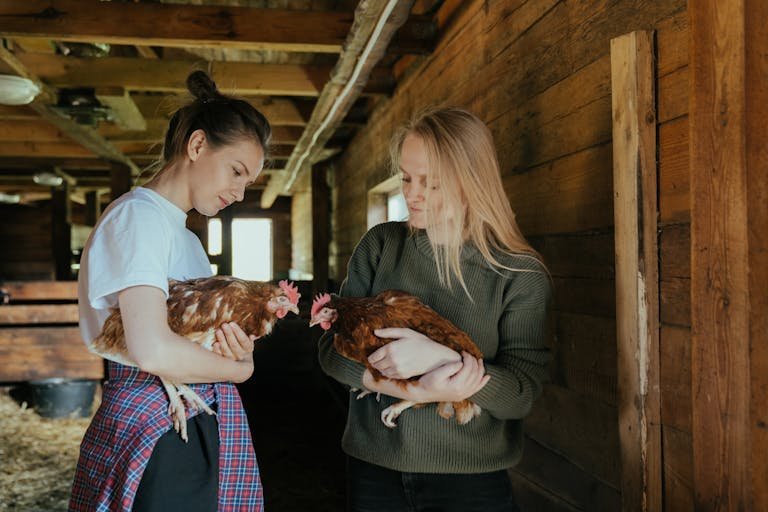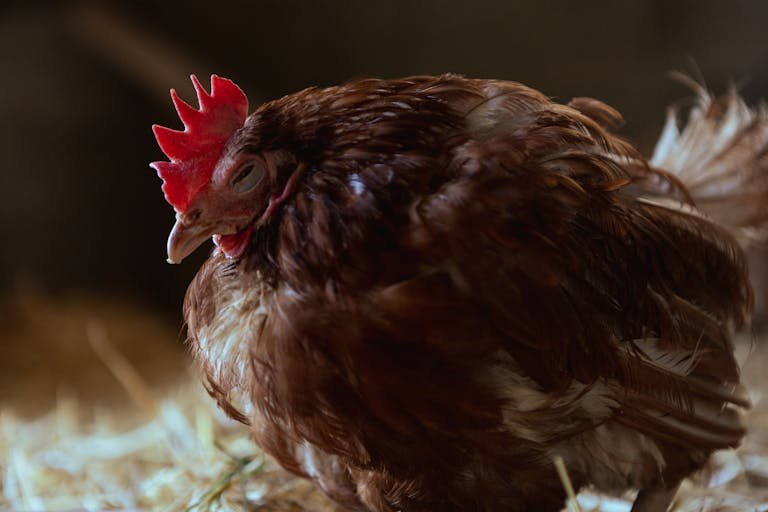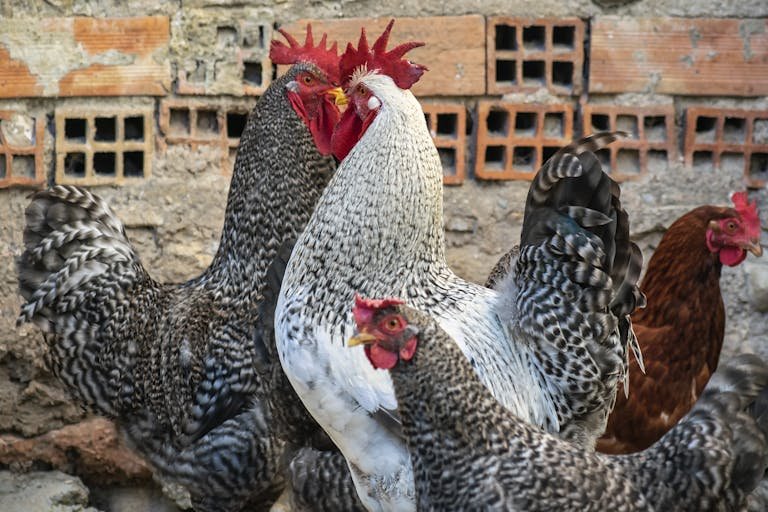Start a Profitable Poultry Farm: Beginner’s Guide
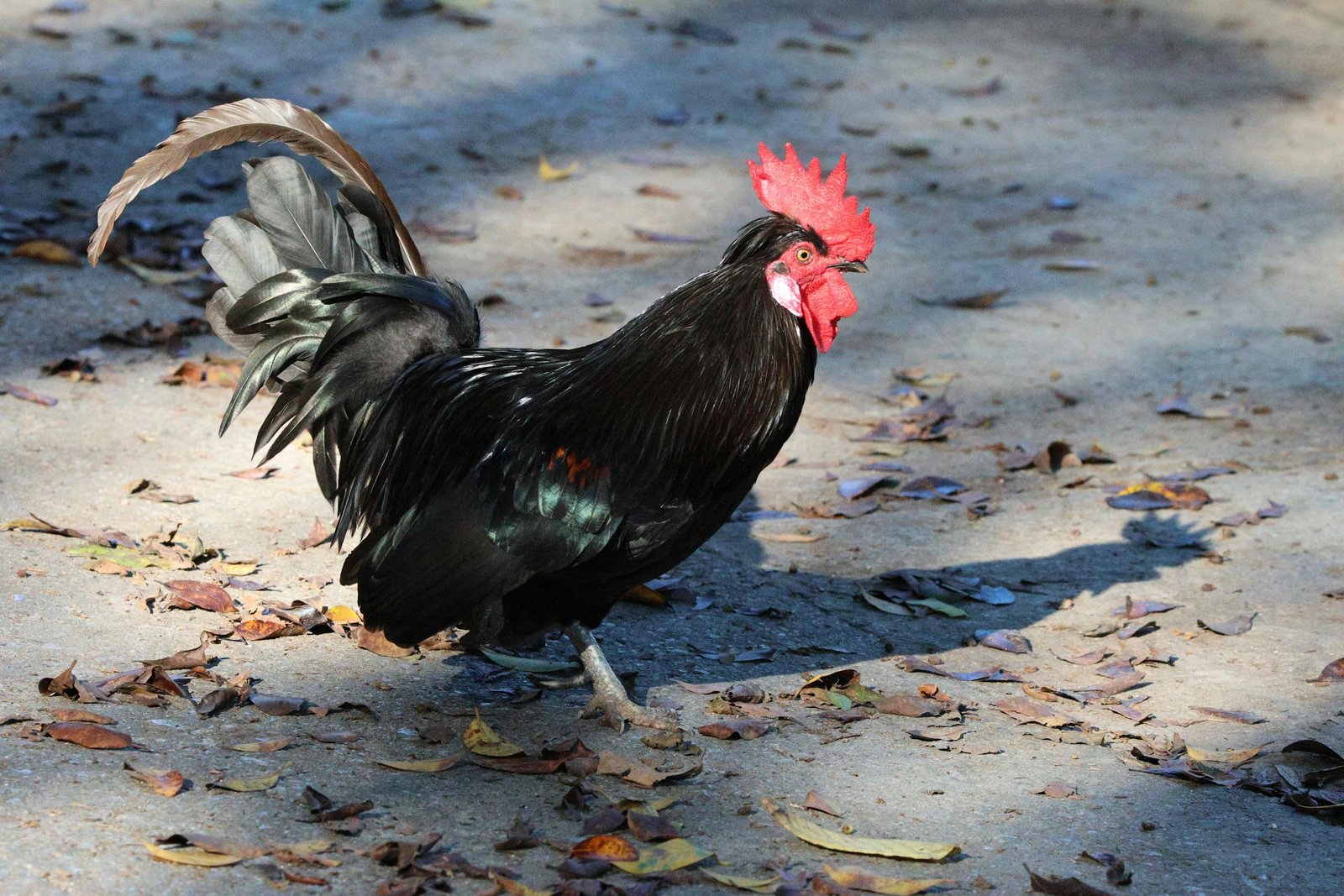
Starting a poultry business can be a rewarding and profitable venture if done correctly. With increasing demand for poultry products like meat and eggs, there is significant potential to succeed. However, running a poultry farm requires thorough planning, investment, and dedication.
This comprehensive guide will provide all about poultry to help you start your poultry business effectively.
Business Plan
Creating a solid business plan is the foundation of your poultry business. A well-thought-out plan will guide your decisions and help you secure funding if needed.
Market Research
- Identify Your Target Market: Determine if you plan to sell your poultry products to retailers, wholesalers, restaurants, or directly to consumers.
- Analyze Local Demand: Understand the demand for poultry meat and eggs in your region. Find out if there are any seasonal variations.
- Assess Competition: Study existing poultry businesses in your area. Analyze their pricing, production methods, and distribution channels.
Financial Planning
- Estimate Startup Costs: Consider costs for land, infrastructure, chicks, feed, equipment, labor, and veterinary care.
- Project Revenue and Expenses: Create projections for income and ongoing costs, such as feed, labor, and utilities.
- Cash Flow Statement: Plan for cash flow to ensure that your business remains solvent during the initial months.
- Secure Funding: If you need additional capital, explore options like bank loans, grants, or investors.
Choose a Location
Selecting the right location for your poultry farm is critical for your success. The site should be suitable for housing your birds and meeting operational needs.
Land Requirements
- Size Considerations: Ensure you have adequate space to accommodate the number of birds you plan to raise. Factor in space for housing, feeding, storage, and waste management.
- Accessibility: Choose a location with good road access for transporting products and supplies.
Infrastructure
- Water and Electricity: Ensure reliable access to clean water and electricity, as both are essential for poultry farming.
- Drainage System: The farm should have proper drainage to prevent waterlogging and ensure hygiene.
- Proximity to Services: Your farm should be near veterinary services and suppliers of feed and equipment.
Set Up Your Poultry Farm
Proper infrastructure and equipment are essential for maintaining healthy and productive poultry.
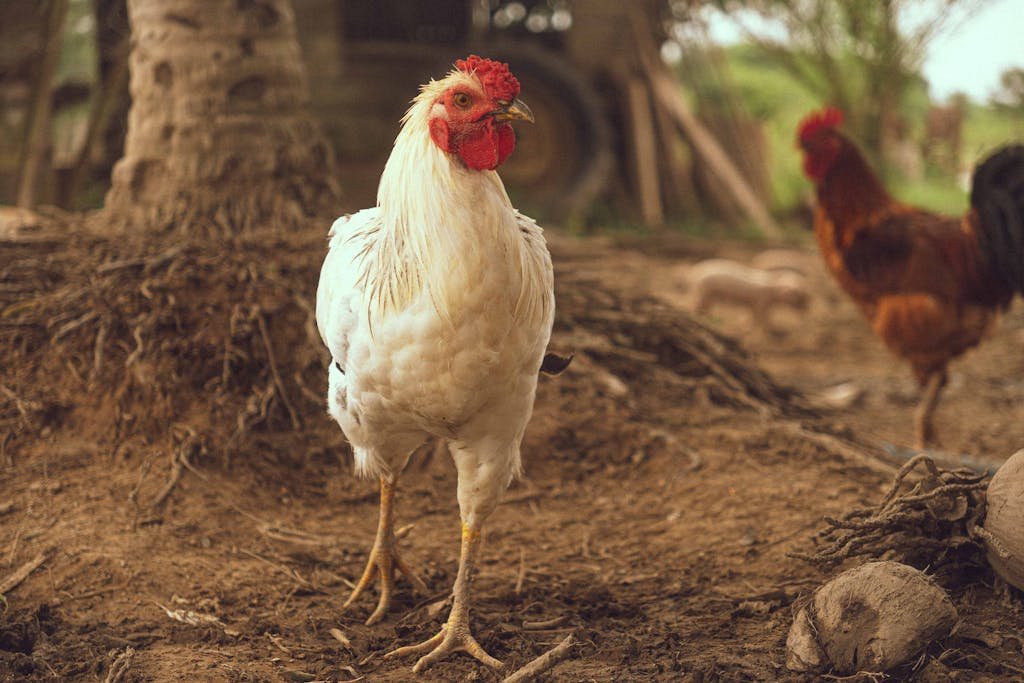
Housing
- Ventilated Structures: Build sturdy, well-ventilated poultry houses to protect birds from harsh weather conditions and predators.
- Hygiene and Temperature Control: Maintain cleanliness and ensure optimal temperature for different growth stages.
- Housing Types: Choose housing systems based on your poultry type:
- Broilers: Ideal for meat production. Requires floor pens or deep-litter systems.
- Layers: Ideal for egg production. Cage systems are often used to maximize space and ease of egg collection.
- Free-Range: Allows birds to roam freely, which can attract health-conscious consumers.
Equipment
- Feeders and Drinkers: Ensure easy access to feed and water to promote bird growth.
- Lighting System: Proper lighting supports egg production and general health.
- Temperature Control: Use heaters or fans to maintain optimal conditions in extreme weather.
- Egg Collection Trays: If you are raising layers, efficient egg collection systems are necessary.
Biosecurity
- Restrict Farm Access: Limit entry to only essential staff to prevent the introduction of diseases.
- Disinfection: Disinfect footwear and clothing before entering poultry areas.
- Regular Cleaning: Clean and disinfect housing, equipment, and feeding areas regularly.
Purchase Chicks or Breeding Stock
Starting with healthy chicks or breeding stock is crucial for the success of your poultry business.
Choose a Reliable Supplier
- Reputable Hatcheries: Source your chicks from trusted hatcheries to ensure they are disease-free.
- Select Healthy Birds: Inspect chicks to ensure they are active, well-formed, and free from deformities.
- Breed Selection: Choose breeds that align with your business goals:
- Broilers for meat production.
- Layers for egg production.
- Dual-purpose breeds for both meat and eggs.
Vaccination and Medication
- Vaccination Program: Vaccinate chicks against common diseases like Newcastle disease, Marek’s disease, and infectious bronchitis.
- Veterinary Care: Establish a relationship with a local veterinarian for health monitoring and treatment plans.
Read Also: Is Oregano Good for Chickens? A Natural Health Boost
Feed and Nutrition
Proper nutrition is essential for healthy growth and maximum production in your poultry farm.
High-Quality Feed
- Balanced Diet: Provide feed that contains the right balance of proteins, vitamins, and minerals.
- Feeding Programs: Consult a poultry nutritionist to design feeding programs for different growth stages.
- Storage: Store feed in a dry, cool place to prevent contamination and spoilage.
Water Supply
- Clean and Fresh Water: Ensure birds always have access to clean, fresh water.
- Regular Maintenance: Clean water containers daily to prevent bacterial growth.
Management and Labor
Efficient management is key to the success of your poultry business.
Hire Skilled Workers
- Experienced Staff: Hire people who have experience in poultry care and farm management.
- Training: Train your workers in hygiene practices, feeding routines, and record-keeping.
Regular Monitoring
- Bird Health: Monitor your poultry daily for signs of illness or stress.
- Performance Records: Keep records of feed consumption, growth rates, and egg production. This helps you identify trends and make informed decisions.
Marketing and Sales
Effectively marketing your poultry products will ensure you have consistent buyers and profits.

Build Relationships with Buyers
- Wholesalers and Retailers: Develop relationships with supermarkets, butchers, and restaurants.
- Online Sales: Utilize online platforms to reach a wider audience.
- Direct-to-consumer: Sell directly to consumers at farmers’ markets or through delivery services.
Packaging and Branding
- Attractive Packaging: Package your poultry products in hygienic, appealing containers.
- Proper Labeling: Include details like product type, weight, and date of packaging.
Quality Control
- Consistent Standards: Maintain high standards of quality and hygiene.
- Customer Satisfaction: Implement measures to ensure your products meet customer expectations.
Additional Considerations
When starting your poultry business, keep in mind some essential legal and environmental factors.
Environmental Impact
- Waste Management: Properly manage poultry waste by composting manure or using it as fertilizer.
- Minimize Pollution: Take steps to reduce odors and runoff that can affect nearby properties.
Regulations and Permits
- Legal Compliance: Understand and comply with local regulations for poultry farming.
- Permits: Obtain necessary permits for operating a farm and selling poultry products.
Insurance
- Protect Your Investment: Get insurance to cover risks like disease outbreaks, theft, and natural disasters.
Read Also: Will a Raccoon Kill Chickens? Protect Your Flock Now!
Final Thoughts
Starting a poultry business requires commitment, knowledge, and proper planning. By carefully following each step in this guide, you can lay the foundation for a successful and sustainable poultry venture. Remember, the key to success lies in maintaining high standards, staying informed, and continuously adapting to market demands. Good luck with your poultry farming journey!

